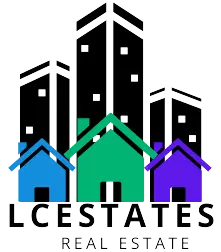Glanville Williams said that the meaning of the word “law” depends on the context in which that word is used. He said that, for example, “early customary law” and “municipal law” were contexts where the word “law” had two different and irreconcilable meanings. Thurman Arnold said that it is obvious that it is impossible to define the word “law” and that it is also equally obvious that the struggle to define that word should not ever be abandoned.
Once accredited, a lawyer will often work in a law firm, in a chambers as a sole practitioner, in a government post or in a private corporation as an internal counsel. In addition a lawyer may become a legal researcher who provides on-demand legal research through a library, a commercial service or freelance work. Many people trained in law put their skills to use outside the legal field entirely. Cynicism over “officialdom” is still common, and the workings of public servants is typically contrasted to private enterprise motivated by profit.
- In the UK the upper house is appointed by the government as a house of review.
- The main institutions of law in industrialised countries are independent courts, representative parliaments, an accountable executive, the military and police, bureaucratic organisation, the legal profession and civil society itself.
- Managers know how to promote a respectful working environment while maintaining the laws of the office.
- This isn’t just any law school, it’s the one that has more judges in more courtrooms than any other.
- Canon law (from Greek kanon, a ‘straight measuring rod, ruler’) is a set of ordinances and regulations made by ecclesiastical authority , for the government of a Christian organisation or church and its members.
Modern military, policing and bureaucratic power over ordinary citizens’ daily lives pose special problems for accountability that earlier writers such as Locke or Montesquieu could not have foreseen. The custom and practice of the legal profession is an important part of people’s access to justice, whilst civil society is a term used to refer to the social institutions, communities and partnerships that form law’s political basis. In common law legal systems, decisions by courts are explicitly acknowledged as “law” on equal footing with statutes adopted through the legislative process and with regulations issued by the executive branch. The “doctrine of precedent”, or stare decisis (Latin for “to stand by decisions”) means that decisions by higher courts bind lower courts, and future decisions of the same court, to assure that similar cases reach similar results. In order to maintain professionalism, the practice of law is typically overseen by either a government or independent regulating body such as a bar association, bar council or law society. There are few titles of respect to signify famous lawyers, such as Esquire, to indicate barristers of greater dignity, and Doctor of law, to indicate a person who obtained a PhD in Law.
Legal systems
His second major article, The Problem of Social Cost , argued that if we lived in a world without transaction costs, people would bargain with one another to create the same allocation of resources, regardless of the way a court might rule in property disputes. Coase used the example of a nuisance case named Sturges v Bridgman, where a noisy sweetmaker and a quiet doctor were neighbours and went to court to see who should have to move. So the Law News ought to pre-empt what would happen, and be guided by the most efficient solution. The idea is that law and regulation are not as important or effective at helping people as lawyers and government planners believe.
Law Commission to review how private international law applies to digital assets and other emerging technology
In a parliamentary system, as with Britain, Italy, Germany, India, and Japan, the executive is known as the cabinet, and composed of members of the legislature. The executive is led by the head of government, whose office holds power under the confidence of the legislature. Because popular elections appoint political parties to govern, the leader of a party can change in between elections. In the ‘lower house’ politicians are elected to represent smaller constituencies. The ‘upper house’ is usually elected to represent states in a federal system or different voting configuration in a unitary system .
Under a presidential system, the executive branch is separate from the legislature to which it is not accountable. Some countries allow their highest judicial authority to overrule legislation they determine to be unconstitutional. For example, in Brown v. Board of Education, the United States Supreme Court nullified many state statutes that had established racially segregated schools, finding such statutes to be incompatible with the Fourteenth Amendment to the United States Constitution.
